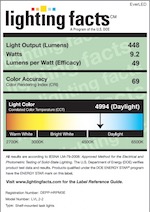If you have thought about owning a solar PV system to cut your energy bill, this may be a great time to take action.
Just after the real estate bust in 2008, residential rooftop solar PV systems purchases started to lose ground to leasing arrangements. It didn’t take long for solar leasing to account for over 50% of solar installations. The reason was simple: difficulty to get financing for outright purchase.
But the table is turning. Ownership may be gaining the upper hand again. Here are the reasons.- Availability of home equity loans. Many homes have regained a good portion of the losses suffered during the bust. Homeowners can now qualify again to borrow against equity. Home equity loans are also at or near all time low. At rates of 4-5%, these loans are great deals for home improvement projects.
- Revival of the PACE (Property Assessed Clean Energy) loans. PACE loans are paid back through property taxes and are therefore transferrable to new owners after a real estate transaction. They were looking to take off in the late 2000’s until, in 2010, the FHA decided that they were unacceptable. Because PACE loans are senior to the FHA loans, the FHA was worried that they cannot recover their money in foreclosures. That was a reasonable thinking in the early 2010’s. In the last year or so, many states and local governments have created insurance policies to guarantee that the FHA can get its fair share in foreclosures. In California, there is a state run pool of $10M for this purpose. Given the recuperation of home values, fewer foreclosures and the PACE insurance, FHA is again allowing PACE applications. PACE loan rates typically run at 5-6% but they require less equity to qualify.
Purchasing and leasing are both viable financing options. The choice ultimately depends on the situation of the homeowner. Over the long term, ownership is financially more favorable than leasing because it cuts paying the leasers. But it requires upfront capital or the ability to secure a loan. Leasing does not require upfront capital nor loan, so it was a good option when capital was scarce. Lease agreements are not standardized and can be confusing so do read them carefully to understand the implications.
Another unexpected consequence of leasing is that it may adversely affect the sale of a home. Although leases are transferrable to new owners and there are opt-out provisions, they require the prospective buyers to read and understand the lease agreement and then decide on a course of action. Buying a house is already stressful enough and adding the solar leasing may just complicate the deal. Bloomberg recently published some stories about how solar leases wreaked havoc.
Solar financing is still an industry in its infancy. In time, the lease contracts may become simpler and people will get more accustomed to them. But meanwhile, owning your system appears to be the simpler and better choice.








